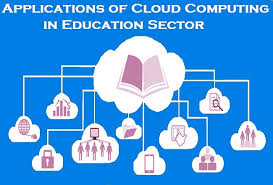In the last decade, Kuwait’s education sector has witnessed a transformation fueled by technology. While traditional methods of learning have their strengths, the arrival of digital tools has opened the door to a new era of efficiency, accessibility, and inclusiveness. Among the many innovations, cloud-based platforms have become the backbone of modern learning. They are not just reshaping how students access knowledge but also how educators design, deliver, and evaluate learning experiences.
Cloud technology is no longer a distant concept; it has become a living, breathing part of Kuwait’s classrooms, universities, and even homes. The role of these platforms is both profound and practical, enabling learning to flourish beyond geographical or physical barriers. This article dives deep into how cloud-based platforms are influencing Kuwait’s education sector, the opportunities they create, the challenges they solve, and the human stories they inspire.
A New Era of Accessibility
One of the most powerful changes cloud-based platforms bring to education is accessibility. In Kuwait, where students often balance rigorous academic expectations with family responsibilities, the cloud makes education flexible.
Instead of being tied to a single classroom or library, learners can now log in from their homes, community spaces, or even while traveling. A student preparing for exams can access their notes at midnight, while a working parent enrolled in higher studies can attend virtual lectures after office hours. Cloud platforms ensure that knowledge is not limited to a building or timetable it is available on demand, personalized to the learner’s pace.
This accessibility is particularly important for remote or under-resourced areas of Kuwait. Students in smaller towns or rural regions, who previously faced limited exposure to quality educational materials, now gain equal access to the same resources available to those in the capital.
Collaboration Without Boundaries
Education thrives on collaboration. Traditionally, collaboration was confined to the classroom—group projects, discussions, or after-school study groups. With cloud-based platforms, collaboration is borderless and dynamic.
Students can work on shared documents, brainstorm ideas in real-time, and exchange feedback instantly. Teachers can monitor group progress without physically being in the room, offering support as needed. Even cross-institutional collaboration has become a reality. Universities in Kuwait are increasingly using cloud platforms to connect students with peers across the Gulf region, creating opportunities for cultural exchange and global exposure.
This shift encourages teamwork, critical thinking, and communication skills essential for the 21st-century workforce. The classroom is no longer bound by four walls; it has expanded into a network where every voice can be heard and every idea can be nurtured.

Cost-Effective Education for All
Education is an investment, but for many families in Kuwait, the rising costs of textbooks, infrastructure, and resources can be overwhelming. Cloud-based platforms offer a solution that is both efficient and economical.
Digital resources hosted on the cloud significantly reduce the need for physical textbooks, printed handouts, and traditional storage systems. Students can access e-books, research papers, and multimedia materials without additional costs. For institutions, this means saving money on infrastructure while being able to scale up quickly without investing heavily in physical space or IT hardware.
Moreover, cloud platforms provide long-term savings. Updates to software, course materials, and applications can be rolled out instantly, removing the need for repeated printing or distribution. The cost-effectiveness of cloud solutions ensures that quality education is not a privilege but a right accessible to all.
Personalized Learning Journeys
Every student learns differently. Some grasp concepts quickly, while others require time, practice, and additional support. Traditional education systems often struggle to address these differences within a single classroom. Cloud-based platforms, however, make personalization possible.
By analyzing student performance data, cloud systems can recommend customized learning paths. For example, a student struggling with mathematics can be guided toward additional resources, quizzes, or tutorials tailored to their needs. Similarly, advanced learners can explore higher-level content without being held back by the general pace of the class.
This personalized approach not only improves academic performance but also builds confidence. Students feel seen and supported, rather than left behind. In Kuwait, where academic excellence is highly valued, such individualized attention can inspire students to pursue learning with passion rather than pressure.
Supporting Teachers and Educators
While cloud platforms benefit students, they also empower teachers. Educators in Kuwait often juggle large classes, administrative tasks, and the pressure of delivering results. Cloud-based tools streamline their workload and allow them to focus more on teaching.
Lesson planning becomes easier with access to centralized repositories of teaching materials. Grading can be automated through integrated systems, saving hours of manual work. Virtual classrooms allow teachers to record lectures that students can revisit anytime, ensuring that learning continues even outside class hours.
Additionally, professional development opportunities for teachers are enhanced through cloud-based training modules. Educators can attend workshops, share insights with colleagues worldwide, and stay updated with the latest pedagogical trends. This creates a ripple effect, as better-equipped teachers contribute to stronger learning outcomes for students.
Resilience During Crises
The global pandemic revealed the importance of resilient education systems. Kuwait, like many countries, faced the challenge of keeping learning alive during school closures. Cloud-based platforms became the lifeline of education, ensuring continuity when traditional classrooms were no longer accessible.
Students were able to attend virtual classes, submit assignments online, and participate in discussions without disruption. Teachers adapted quickly, using tools like cloud-based whiteboards, quizzes, and interactive sessions to keep students engaged. Parents, too, became more involved in their children’s education, often monitoring progress through shared dashboards.
This resilience has left a lasting mark. Even after schools reopened, the role of cloud platforms remained significant, not as a backup but as an integral component of hybrid learning models. The crisis demonstrated that cloud technology is not just a convenience it is a necessity for safeguarding education against unforeseen disruptions.
Driving Innovation in Learning
Cloud-based platforms are not limited to replicating traditional classrooms; they are driving innovation. In Kuwait, institutions are experimenting with immersive learning experiences such as virtual labs, simulations, and gamified content. These tools make complex subjects easier to understand and more engaging.
For instance, a biology student can conduct virtual experiments without the limitations of lab space or equipment. Business students can simulate market scenarios to test decision-making skills. Cloud platforms also enable adaptive testing, where questions evolve in real time based on a student’s answers, offering a smarter way to evaluate learning.
Such innovations create excitement around education, motivating students to explore subjects deeply and creatively. They also prepare learners for the future, where technology-driven skills will be crucial for career success.

Bridging the Gap Between Education and Employment
Kuwait’s economy is evolving, with a strong focus on diversification and knowledge-based industries. This shift demands a workforce equipped with digital literacy, problem-solving, and collaboration skills. Cloud-based platforms help bridge the gap between education and employment by aligning learning with industry needs.
Students can participate in virtual internships, online skill-development programs, and real-world projects hosted on cloud platforms. Employers can collaborate with educational institutions to design training modules, ensuring graduates are ready for the demands of the modern workplace.
By nurturing this connection, cloud technology plays a pivotal role in reducing the mismatch between academic qualifications and job market requirements. It transforms education into a pathway that not only imparts knowledge but also prepares individuals for meaningful careers.
Challenges on the Road Ahead
While the benefits are clear, the integration of cloud-based platforms in Kuwait’s education sector is not without challenges. Infrastructure remains a concern in certain regions, where internet connectivity and device availability are limited. Ensuring equitable access for all students is a priority that needs ongoing attention.
There are also cultural and practical hurdles. Some educators and parents are still adapting to the idea of virtual classrooms and digital tools, preferring traditional methods. Data security and privacy are other important issues, as sensitive student information must be protected within cloud systems.
Overcoming these challenges requires collaborative effort between government bodies, educational institutions, technology providers, and communities. With the right investment and awareness, these obstacles can be transformed into opportunities for growth.
The Human Impact
Behind all the technology and systems, the real story of cloud-based platforms lies in human impact. A young girl in a rural town who dreams of becoming a doctor can now attend online courses that were once unavailable. A teacher who struggled with paperwork can now dedicate more time to inspiring students. A university graduate preparing for global opportunities can sharpen skills through international collaborations all from the cloud.
These stories show that technology is not replacing human connections but strengthening them. Cloud platforms serve as bridges connecting dreams with opportunities, efforts with outcomes, and individuals with communities.
The Future of Cloud in Kuwait’s Education
Looking ahead, the role of cloud-based platforms in Kuwait’s education sector will only expand. As infrastructure strengthens and digital literacy deepens, schools and universities will continue to integrate cloud tools into every aspect of learning.
Artificial intelligence, machine learning, and big data will further enhance personalization, creating highly adaptive learning environments. The boundaries between formal education and lifelong learning will blur, allowing individuals to pursue knowledge throughout their lives, supported by cloud systems.
The future promises not only better education but also a society that values innovation, inclusiveness, and empowerment. Cloud platforms will be at the heart of this transformation, guiding Kuwait toward its vision of becoming a knowledge-driven nation.
Conclusion
The role of cloud-based platforms in Kuwait’s education sector goes far beyond technology it represents a shift in mindset, culture, and possibilities. By breaking barriers of accessibility, fostering collaboration, supporting teachers, and preparing students for the future, the cloud is shaping a brighter educational landscape.
While challenges remain, the human benefits are undeniable. Students feel empowered, teachers feel supported, and families feel connected. Education in Kuwait is not just keeping up with the times it is setting a foundation for generations to thrive in an interconnected world.
Cloud-based platforms are not the future of education in Kuwait; they are the present, and their role will only grow stronger. With every login, every shared file, and every virtual classroom, the cloud is writing a new chapter in the story of education one defined by hope, progress, and limitless opportunity.
Also Read – Smart Artificial Intelligence Innovations Reshaping Kuwait’s Investment Future



